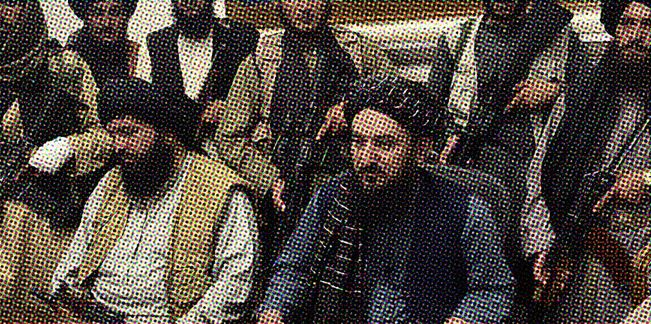By: Omay Aimen
The Doha Accords’ counterterrorism clauses have been flagrantly violated by the Taliban, as revealed in a comprehensive report released in June 2023 by a United Nations sanctions monitoring team. A fundamental component of this accord was the Taliban’s commitment to stop Afghanistan from becoming a refuge for terrorist groups like Al-Qaeda and ISIS-K. However, the present situation stands in sharp contrast to these pledges. One defining feature of the Taliban government has been the widespread incapacity—or reluctance—to destroy these organisations’ operational networks. The incapacity of the Taliban to halt acts of terrorism, together with mounting proof of their involvement and tacit support, has cemented their standing in Afghan society.The deterioration of security and unbridled functioning of proscribed terrorist organisations in Afghanistan has extensive ramifications, creating substantial instability across South and Central Asia. Concerns about perpetual extremism, insurgencies, and the growing refugee crisis have been intensified in neighbouring countries due to cross-border terrorist operations stemming from Afghanistan. Pakistan’s stance has been reinforced by the recent killing of Abdul Mannan alias Hakeemullah in the Asadabad district of Afghanistan’s Kunar region. Abdul Mannan was the well-known member of the TTP and a confidant of the leader Azmatulah alias Azmat Lala of Tehreek e Taliban (TTP) Bajaur Chapter. The fact that Mannan was released immediately after the Taliban’s takeover facilitated him to resume terror activities, including targeted killings, IED blasts, extortion and coordinating acts of terrorism inside Pakistan.
TTP has deep routed linkages with Afghan Taliban and these relations are greatly influenced by degree of intimacy TTP factions enjoy with their friendly groups of Afghan Taliban. The division between Afghan Taliban factions leads to similar rivalries among TTP as well. These internal conflicts have direct bearing on the security situation of Afghanistan itself and at the same time is reflective of fragmentation and loose control on external terrorist outfits operating within Afghanistan. The killing of Abdul Mannan highlights the larger problem of terrorist safe havens in Afghanistan, which Pakistan has brought up time to time. Pakistan’s stance is supported by reservations of international community and organisations alike. The Taliban’s interim administration has an implicit involvement in activities of these organisations including TTP. Recovery of latest weaponry from killed TTP terrorists operating from Afghanistan raises serious questions on ability of Afghan Government in preventing the use of their soil for acts of terrorism in neighbouring countries. Abdul Mannan’s murder is testament to complicated situation infested with increasing divide between taliban and their foreign proxies. Infighting of Taliban warlords maintaining their own fiefdoms for vested political and economic interests has created highly volatile security challenges for Afghanistan’s neighbours. These external groups are acting as pressure apparatus and their support to various factions of Taliban is crucial to maintain their authority in an intra government divide. The equivocal position taken by the Afghan government towards Pakistan’s counterterrorism initiatives exacerbates this issue. There are severe doubts regarding Afghanistan’s capacity to promote peace and stability in the area in the face of terrorist attacks from Afghanistan into Pakistan.
Pakistan has borne a substantial burden in its relentless battle against terrorism. The Pakistan Army, bolstered by unwavering national support, has achieved remarkable success in quelling this scourge. The Pakistan Army’s remarkable professional ability is demonstrated by the fact that no other force in the world has dealt with an insurgency of this size. The large-scale campaigns, Radd-ul-Fasaad in 2017 and Zarb-e-Azb in 2014, were crucial in destroying extremist groups including Tehreek-e-Taliban Pakistan (TTP), Al-Qaeda, and other foreign and indigenous terrorists. These actions significantly decreased terrorist activity within the nation and seriously disrupted terrorist networks. In recent times, Pakistan’s intelligence agencies have demonstrated their skill by foiling attempts by the proscribed TTP to create strongholds in Balochistan, a region that has served as a focal point for anti-state operations. Pakistan has consistently provided proof on the TTP’s operations and bases in Afghanistan, but the Afghan government has consistently refuted these claims, therefore ignoring the mounting threat. An unstable and complicated security environment is a result of terrorist networks’ continued existence, the TTP’s internal dynamics, and the Afghanistan’s disregard for the Doha Accords’ counterterrorism requirements. To solve these issues and clear the path for a more safe and stable future for Afghanistan and its neighbours, the international community, regional actors, and the Afghan government need to exert unison effort. There is no solution to eliminate the menace of terrorism with a sincere and well articulated effort by all stakeholders.
–The author is an independent researcher who writes on issues concerning national and regional security, focusing on matters having critical impact in these milieus. She can be reached at omayaimen333@gmail.com










